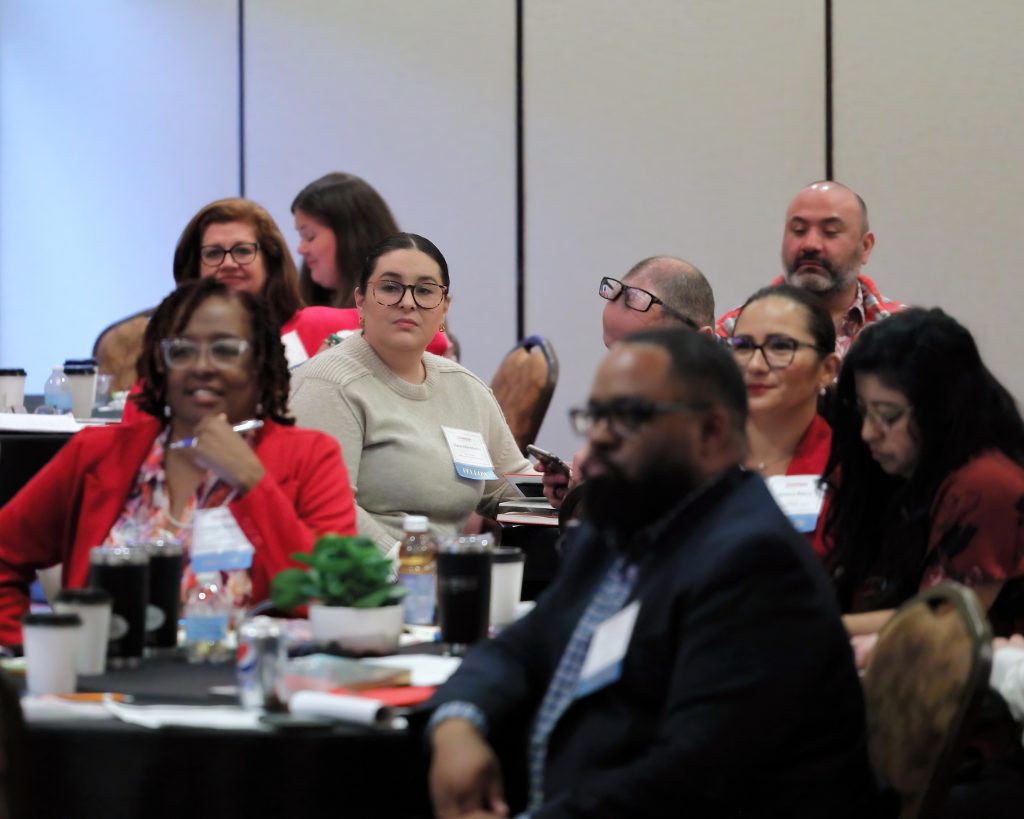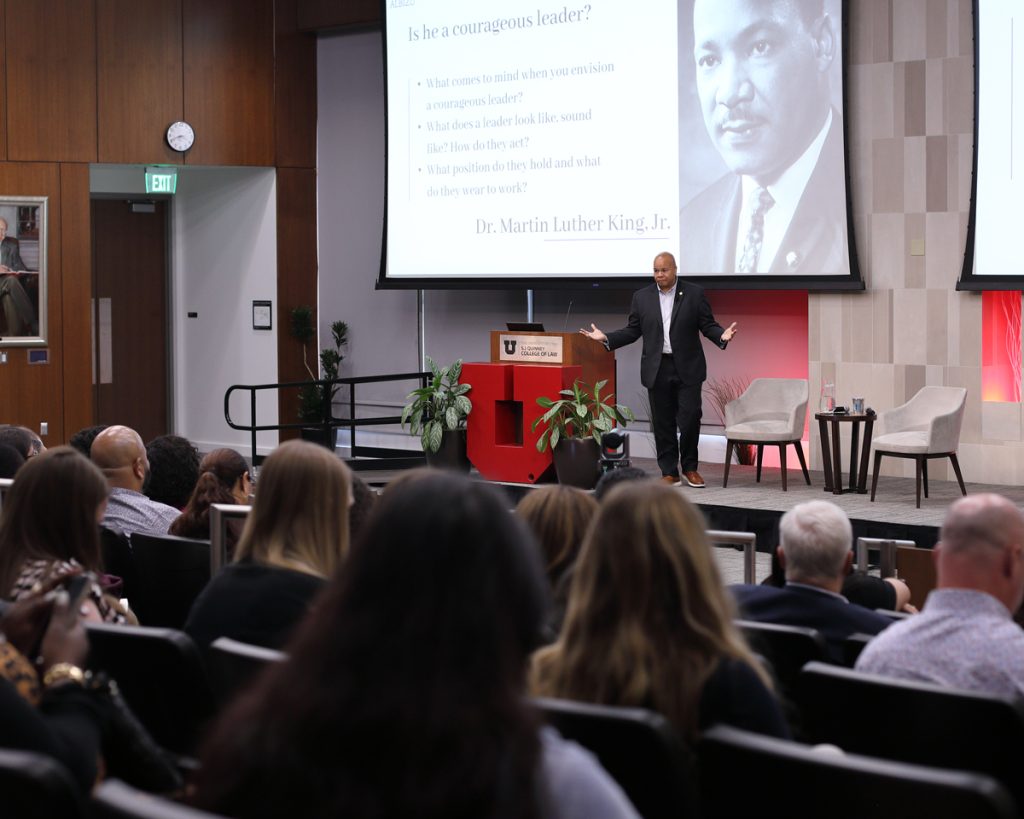Shared Equity Leadership
A new approach to leadership at the heart of the NLA’s mission
The New Leadership Academy prepares individuals for leadership that’s built to win anywhere.
Equity, Diversity, and Inclusion • August 18, 2023
As applications continue to arrive for the 2024 New Leadership Academy Fellows cohort, and NLA members start to comb through submissions, the internet seems awash in “Ted Lasso” lessons for leadership: lean into vulnerability, good ideas can come from anywhere (and anyone), you win when you inspire confidence in others, and be a goldfish (they’re the happiest animal because “they have the shortest memory—just 10 seconds,” Lasso says).
It can feel like the kind-hearted coach from Kansas is everywhere these days—dispensing compassionate team-building know-how in 15-second soundbites. But leadership isn’t just feel-good fodder for uplifting family entertainment (with all apologies to the delightful Jason Sudeikis), it’s also a major global industry.

“Leaders today need to be prepared to operate in a variety of contexts—and be agile enough to face both internal and external challenges,” says Amy Fulton, Ph.D., director of the New Leadership Academy (NLA). That’s why the leadership development industry is expected to keep growing over the next decade—tripling in size by 2032 according to one projection. It’s also why today’s professionals, academics, and health care specialists are so keen to find the best evidence-based programs to prepare the next generation of leaders.
The New Leadership Academy is helping to fill that role for a growing number of professionals in higher education and health sciences, and helping develop leaders who can keep groups motivated, focused on big goals, and moving forward in order to bring about meaningful and enduring change.
This summer, nearly seventy administrators, faculty, and staff from across the country participated in the NLA Summer Institute, a week of activities, panels, discussions, and networking on the U of U campus—all focused on the necessity of sound and inclusive leadership practices. A handful of vice presidents and provosts, deans and directors, physicians, and health practitioners (along with one university president) from colleges, universities, and health systems across the country were there to participate.
“The Summer Institute is an exciting way to cap the Fellows program,” Fulton says. “We bring in top-level leaders from all over—California, Michigan, Texas, Maryland, and many more—and the discussions, personal growth, and camaraderie that happen between attendees is always amazing!”

The NLA’s principles include knowledge, tools, and courage—and during this year’s weeklong Summer Institute, the workshops and curriculum, from strategic planning for equity and inclusion, to leading from your kuleana (your personal contribution or gift), to working through crisis, and managing negotiations, demonstrated just how much knowledge and skills are required to successfully lead in today’s workplace. At the heart of the NLA’s Institute and the entire six-month Fellows program is the Shared Equity Leadership (SEL) model, a philosophy and practice for centering equity and collaborative work in leadership practices. Fulton explains, the primary aim of SEL is to create scalable and interconnected solutions across campus so that all students, staff, and faculty can be successful—truly making equity “everyone’s work.”
As vice president for Equity, Diversity, and Inclusion at the University of Utah, Mary Ann Villarreal says, the NLA’s goal isn’t just about leading your team to wins, but about working together, thriving in a variety of institutional contexts, and demonstrating care while employing smart strategies for success. “’Ted Lasso’ is a fun series with some good lessons—but there’s a great deal of research, skill building, and innovation that goes into a successful leadership development program like the NLA, too.”
The NLA is currently accepting nominations and applications for their next Fellows cohort to start early in 2024. Early-bird applications will be accepted until September 18 of this year, while all other applications can be submitted up until October 23. To learn more about the NLA and find out how to apply, visit the New Leadership Academy website.